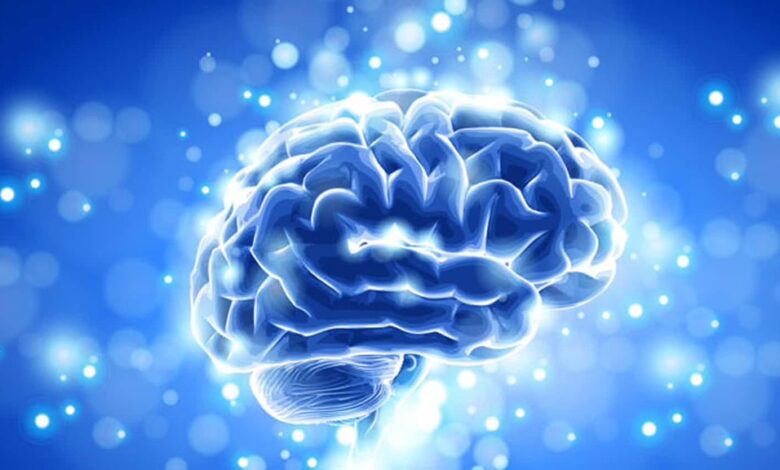Ability to react quickly with sarcasm is an indication of healthy brain
People with frontotemporal dementia, for example, have trouble identifying sarcasm, according to researchers at the University of California, San Francisco.

Researchers are discovering that being able to recognise irony is actually helpful. Researchers in the fields of linguist, psychology, neurology, and others have been examining our capacity for perceiving ironic comments over the past 20 years in an effort to obtain new understanding of how the mind functions. Research indicates that being around sarcasm fosters innovative approaches to problem solutions. By the time they reach kindergarten, kids know how to employ and understand sarcasm. Sarcasm comprehension issues could be a precursor to brain damage, as reported by Smithsonian Magazine.
To survive in today’s hilariously ironic society, the ability to recognise sarcasm is a necessary one. Neuropsychologist Katherine Rankin of the University of California, San Francisco, says, “Our culture in particular is permeated with sarcasm.”
America in the twenty-first century is so full of sarcasm that, in one analysis of a database of phone calls, the word “yeah, right” was used in a sarcastic manner 23% of the time. Because they are used so often with a sneer, entire sentences have almost entirely lost their actual meaning. “Big deal,” to illustrate. When was the last time you heard someone truly say that to you? “Tell someone who cares” is almost always implied by the statement “My heart bleeds for you,” and “Aren’t you special” implies that you aren’t.
Speaking as a linguist at Macalester College in St. Paul, Minnesota, and author of Talk is Cheap: Sarcasm, Alienation, and the Evolution of Language, John Haiman claims that “it’s practically the primary language” in contemporary society.
It appears that sarcasm engages the brain more than sincere remarks do. Scientists who have observed the electrical activity in test subjects’ brains after exposing them to sarcastic words have discovered that understanding sarcasm requires more mental effort.
Another study suggests that this additional work may sharpen our minds. Israeli college students listened to grievances on a phone company’s customer support line. When concerns were satirical rather than outright hostile, the students were more competent at coming up with original solutions to problems. Sarcasm “seems to stimulate complex thinking and to attenuate the otherwise negative effects of anger,” according to the authors of the study.
People find sarcasm more upsetting than direct criticism
In a way, sarcastic remarks are genuine lies. If your listener understands that you are being dishonest, the communication will go as intended even though you are saying things you don’t genuinely mean. Sarcasm is a double-edged sword that can be both cruel and humorous. There are conflicting views about why humans use it because of its dual nature.
According to some linguists, sarcasm is a kind of milder insult that is meant to subdue criticism through humour and indirectness. Rather than saying, “This room is a sty,” a parent might ask their child, “How do you keep this room so neat?”
However, some researchers have discovered that people find sarcasm more upsetting than direct criticism because of its mocking, smug, superior quality. Sarcasm is also a useful tool. According to Penny Pexman, a psychologist at the University of Calgary who has spent more than 20 years researching sarcasm, most of us go through life expecting things to work out well. Nobody would organise an outdoor wedding otherwise. According to Pexman, making a sarcastic remark when things don’t work out allows us to convey our displeasure and expectations at the same time. When the rain ruins a picnic and you joke, “We picked a fine day for this,” you’re expressing your disappointment with the weather as well as your wish for a bright day.
Sarcasm is more frequently used when speaking with friends than when speaking with enemies.
Observers assessed the facial expressions of people delivering sarcastic statements in an experiment conducted by Patricia Rockwell, a sarcasm expert at the University of Louisiana at Lafayette. Expressions around the mouth, rather than the eyes or brows, were more frequently identified as a hint to a sardonic statement.
The eyes could potentially be a dead giveaway. California Polytechnic University researchers discovered that test volunteers who were prompted to make sarcastic statements were less likely to look the listener in the eye. According to the study, absence of eye contact is a signal to the listener that “this statement is a lie.”
Autism, closed head traumas, brain lesions, and schizophrenia can all impair the ability to detect sarcasm.
Another study that looked at sarcasm in American TV sitcoms concluded that there is a “blank face” variation of sarcasm delivery.
Despite these indicators, identifying sarcasm can be challenging. Scientists have discovered that a variety of factors can lead our sarcasm detectors to malfunction. Autism, closed head traumas, brain lesions, and schizophrenia can all impair the ability to detect sarcasm.
People with frontotemporal dementia, for example, have trouble identifying sarcasm, according to researchers at the University of California, San Francisco. According to neuropsychologist Katherine Rankin, a loss of the ability to detect sarcasm could be utilised as an early warning indication to assist diagnose the disease.
“If someone who has the sensitivity loses it, that’s a bad sign,” Rankin states. “If you suddenly think Stephen Colbert is truly right wing, that’s when I would worry.”

According to current brain imaging research, several regions of the brain are involved in the processing of sarcasm. Rankin discovered that the temporal lobes and the parahippocampus are involved in detecting sarcasm. According to a study conducted by researchers at the University of Haifa, while the left hemisphere of the brain appears to be responsible for interpreting literal statements, the right hemisphere and both frontal lobes appear to be involved in determining when the literal statement is intended to mean exactly the opposite. You might also purchase a sarcasm detector. Scientists have discovered that they can teach a computer to recognise sarcasm. Last year, computer scientists at Hebrew University in Jerusalem created a “Semi-supervised Algorithm for Sarcasm Identification.”
The programme detected 77 percent of sarcastic expressions in Amazon purchaser comments such as “Great for insomniacs” in a book review. According to the researchers, a machine that can recognise sarcasm could do a better job summarising user opinions in product reviews.
The Signal Analysis and Interpretation Laboratory at the University of Southern California announced in 2006 that their “automatic sarcasm recognizer,” a set of computer algorithms, could recognise sarcastic versions of “yeah, right” in recorded telephone conversations more than 80% of the time. The researchers propose that a sarcastic computerised phone operator might be designed to “get” the joke with “synthetic laughter.”
You might also be intersted in – Study signifies brain stimulation enhances mathematical skills



